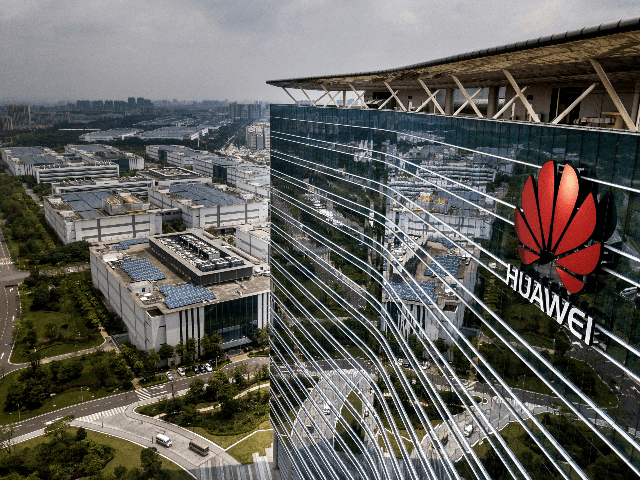Several of China’s top tech companies — including TikTok owner ByteDance, telecom giant Huawei, and Alibaba — have recently chosen to expand their business ventures to Singapore as part of China’s economic plan for “global expansion,” the Chinese Communist Party (CCP) mouthpiece Global Times reported on Sunday.
Chinese-owned ByteDance “plans to make Singapore its headquarters for the rest of Asia,” the Times claimed, while Chinese tech giant Tencent has also reportedly chosen Singapore as its new “Asian hub.” Tencent has already shifted some of its “business operations — including international game publishing — out of China,” according to the newspaper.
“Other Chinese tech companies including Huawei’s cloud division, Alibaba’s Ant Group, and Haitong Securities also seek cooperation with local business organizations in Singapore,” according to the report.
Chinese tech giants have embraced this “going out” approach as part of their “global expansion bids, in line with China’s overall economic development strategy … The trend started before the outbreak of the trade war and is expected to continue,” the CCP mouthpiece claimed.
In January, the U.S. signed a “phase one” trade deal with China, pausing what some observers have referred to as “a damaging trade war” between the world’s top two economies. The trade conflict started in 2018 and involved retaliatory tariffs imposed on billions of dollars worth of goods — in part a U.S. response to nefarious Chinese behavior such as intellectual property theft, espionage, and the use of slave labor to undercut American product prices. Despite the January trade deal, economic relations have continued to deteriorate between the U.S. and China for the past six months over China’s refusal to abandon its attacks on the American economy.
China has recently refocused efforts to develop its domestic manufacturing sector “after a growing list of Chinese businesses, including Huawei … [were recently] blacklisted by Washington, restricting their access to U.S. products and technologies,” the South China Morning Post reported on September 11. American lawmakers and military experts have warned that Huawei, in particular, presents significant national security experts due to its close ties to the Communist Party.
With this backdrop, Chinese tech companies choosing to expand within the confines of greater Asia comes as little surprise, the Global Times contended.
In the past, “many [Chinese] tech companies chose to list in the U.S. and Hong Kong stock markets in order to narrow the differences with their users,” the Global Times noted. “Chinese tech companies used to be followers of NASDAQ listed companies, but now China’s internet, especially mobile internet, is advancing faster than the rest of the world, and the internet players in the Chinese market are as popular as those being copied abroad.”
The newspaper described Chinese tech companies’ expansion out of China and into nearby Southeast Asia as a natural progression: “Singapore and China have small cultural differences, similar administrative systems, and lower communication costs. China’s digital technology radiates across Southeast Asia with Singapore as the hub, and then continues to reach overseas markets in Southeast Asia.”
The intra-Asian expansion is a “more rational and safe choice in the current global geopolitical competition climate,” according to the article, while still “spreading China’s influence to the outside world.”

COMMENTS
Please let us know if you're having issues with commenting.